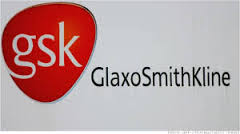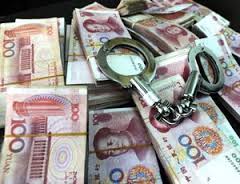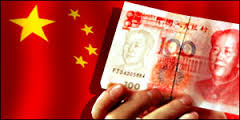GSK China: Did Case Finish with a Bang or a Whimper?
 In typical Chinese fashion, the prosecution of GSK and several GSK executives ended after a one-day “trial.” GSK paid a $489 million fine; and four criminal sentences were handed out with suspension of jail time and orders of deportation. GSK also issued an apology.
In typical Chinese fashion, the prosecution of GSK and several GSK executives ended after a one-day “trial.” GSK paid a $489 million fine; and four criminal sentences were handed out with suspension of jail time and orders of deportation. GSK also issued an apology.
The question is whether the GSK case went out with a bag or a whimper? Clearly the GSK case was resolved through a series of back-channel negotiations that played out in a scripted one-day trial.
It is hard not to consider that other more significant influences entered into the equation. Multinational businesses are recognizing that some of the luster of expanding into China has worn off. It may be that expectations were too high as to economic opportunities in China.
At the same time, the regulatory atmosphere has changed significantly. In recent months, China’s antitrust enforcers have become more active and domestic bribery enforcement of foreign companies has increased. Multinational companies and foreign governments have begun to complain to the Chinese about these problems.
The Chinese have been “suffering” an economic slowdown that translates into only a 7 percent increase in GDP. (We would surely be happy with that).
Some believe that the Chinese were ramping up enforcement to bring about lower prices in the pharma and medical device markets. Antitrust and corruption prosecutions give the government an explanation for why consumers were seeing price increases.
Did the Chinese go too far in this effort and pull back to keep Western companies interested in the markets? It is hard to sort out this issue but there appears to be much more back-channel influences in the GSK story.
So, back to the original question – was the case a bust or a bang? On the aggressive side of the calculation, a $489 million fine is nothing to sneeze at in anti-corruption enforcement.
On the US side, that would land as number 3 on the top-10 list. However, given the rampant nature of the alleged corruption, one can argue that $489 million is not too bad for a resolution.
 The resolution of the individual criminal cases was a welcome relief. To think that foreign nationals could be jailed in China under Chinese due process standards is a scary thought. Companies would have great difficulty in attracting ex-pats to sign up for positions in China if they were subjected to the Chinese criminal justice system. The resolution of the criminal cases, basically deporting the individuals, and suspending their sentences, was good for everyone involved.
The resolution of the individual criminal cases was a welcome relief. To think that foreign nationals could be jailed in China under Chinese due process standards is a scary thought. Companies would have great difficulty in attracting ex-pats to sign up for positions in China if they were subjected to the Chinese criminal justice system. The resolution of the criminal cases, basically deporting the individuals, and suspending their sentences, was good for everyone involved.
The tricky issue in this new era of global anti-corruption enforcement is what impact, if any, will this resolution have on US and UK enforcement against GSK. The US has taken into account prior enforcement actions by foreign governments in other cases. If the US takes into account GSK’s settlement with the Chinese, it will be a precedent setting case for that reason alone.
In May 2014, The Serious Fraud Office in the UK announced it opened an investigation of GSK. Given that GSK is a UK-based company, the SFO’s resolution of this case will be an important test of the SFO as it tries to gain respect in the anti-corruption enforcement world.
In both the US and UK arenas, GSK will have a strong argument that it already has paid a serious price in China. Unfortunately, the US investigation (and probably the UK investigation) involves other countries where GSK is alleged to have engaged in bribery.
















1 Response
[…] Volkov wonders if the GlaxoSmithKline PLC case ended with a bang or a whimper. Tom Fox places rigor and […]